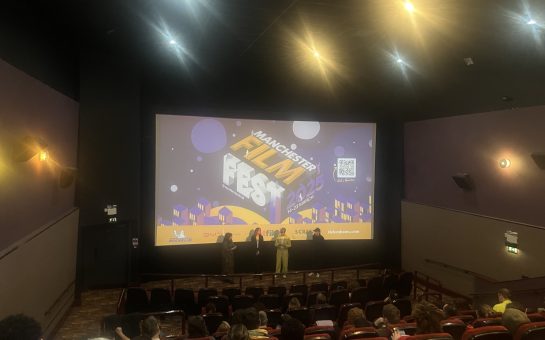World-famous, Salford-based BBC Philharmonic Orchestra brought 72 years of Radio 4’s Desert Island Discs to the Bridgewater Hall with plenty of gusto.
But would it be a tropical treat for Manchester’s classical music enthusiast or would it be more a case of Desert-er Island Discs?
For those who are unfamiliar with Roy Plomley’s Desert Island Discs, the premise is simple to grasp. Famous guests are asked to choose eight pieces of classical music, a book and a luxury item that they would take with them to a deserted island.
And the live show programme was formed from a number of celebrity selections, chosen due to their widespread popularity.
As the concert hall brimmed with people, it was clear to see that the meticulously-selected repertoire was a hit with the masses.
The concert took an unusual format for a classical recital, with each piece linked by an excerpt from a ‘castaway’ interview.
The audience waited with baited breath for Grammy nominated conductor Anthony Inglis to grace the stage. The pomp and circumstance saw that he was greeted with riotous applause before leading the orchestra to the opening piece.
By The Sleepy Lagoon, Eric Coate’s masterpiece, was a tranquil start to the repertoire, filling the spacious hall with dream-like phrases and romantic nuances, while giving a taste of the memorable pieces to come.
The audience were not disappointed to hear Beethoven’s ferocious Symphony No.5 (First Movement) in all its glory.
The orchestra was in full force, bringing to life the musical drama that Beethoven is so famed for.
The tension could have been cut with a knife as the musicians darted and dived between the intense passages and the contrasting delicate phrases. It was a show-stopper.
The three young soloists – Mark Simpson (clarinet), Jennifer Pike (violin) and Gwilym Simcock (piano) – all gave incredibly well-poised and confident performances, reminding the audience of the reasons behind their well-deserved success.
Among the emotive pieces of music heard at tonight’s spectacle was Adagio for Strings, composed by Samuel Barber. This famous work has been used throughout the years to signify the memorable funerals of icons such as Albert Einstein and Princess Diana.
But today was somehow more poignant, with Inglis dedicating the string movement to the memory of Alan Henning, the Salford taxi driver whose brutal murder shook the nation on Friday.
As the passionate music filled the room, the audience seemed to hold their breath.
A moving gesture from the conductor, carried out in a dignified and respectful manner, it was the perfect remembrance piece for the people of Greater Manchester.
The concert finished with a grand send-off Jupiter by Holst.
The iconic movement flushed the room, filling the audience with feelings of nostalgia, evoking emotions that can only be stirred by such an inspiring piece.
The vivacious sound from the full orchestra was a beautiful and dramatic end to the afternoon, leaving the audience on the edge of their seats until the final note was sounded.
If any of the audience had to choose which luxury to take to a desert island, based on performance, it would undoubtedly be the BBC Philharmonic.
A perfectly- polished ensemble, with a repertoire so striking it will certainly stay with the audience for years to come – this was the ideal classical music concert.
From the orchestral novices to classical enthusiasts, there was something for everyone to take away.
Courtesy of BBC via YouTube with thanks



